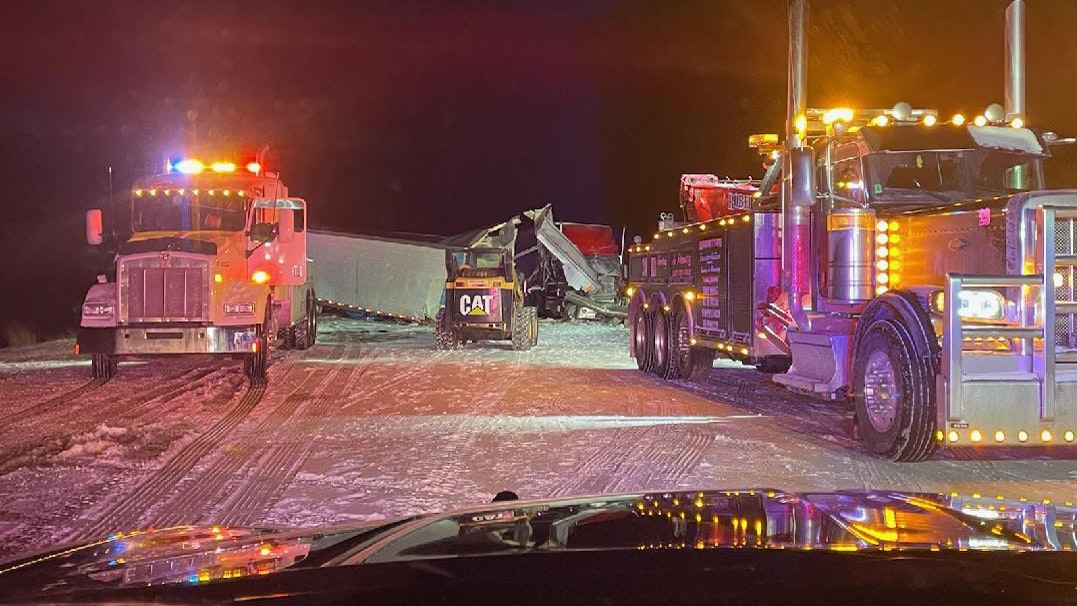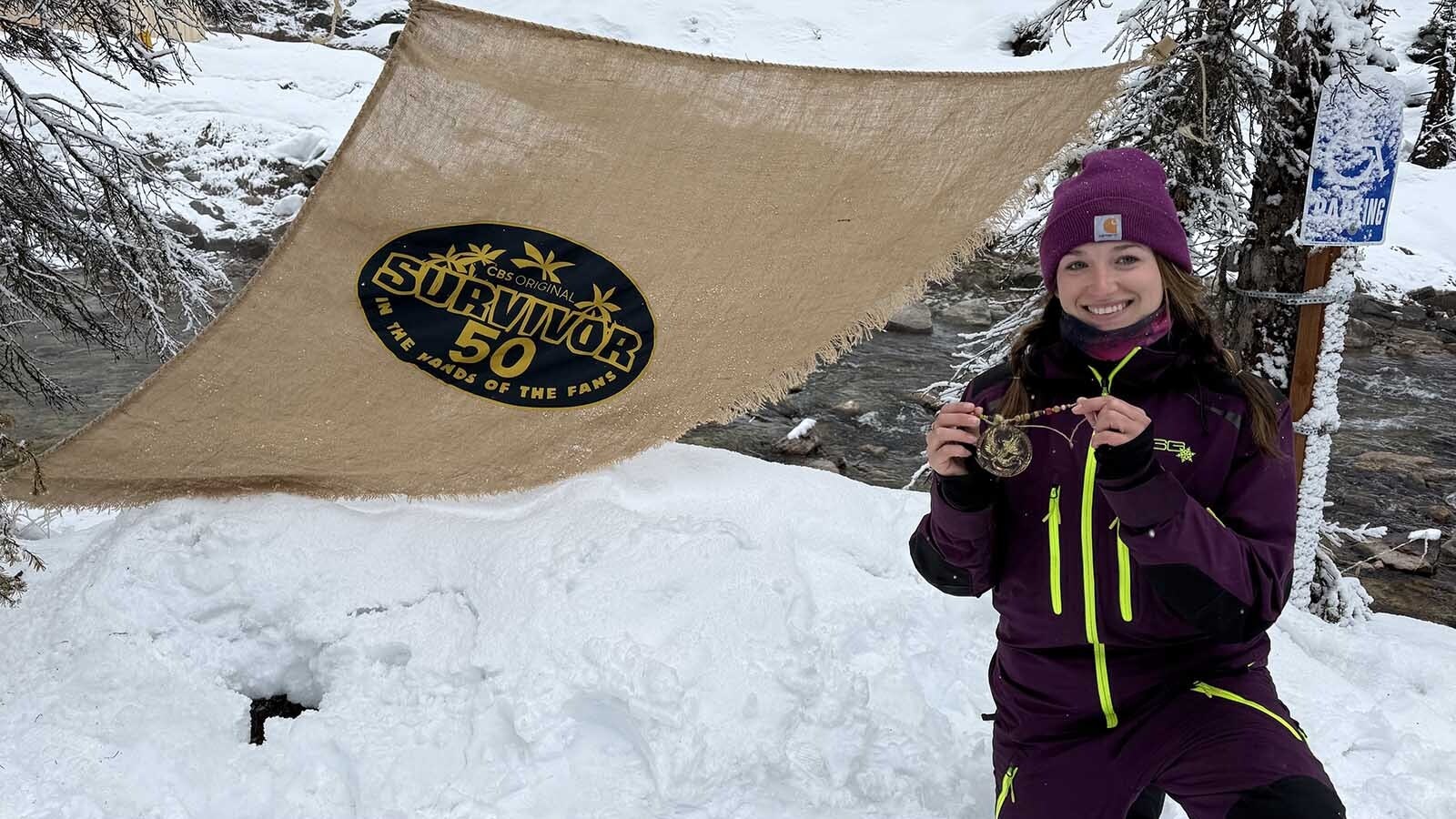CASPER — The five-man crew from the Laramie Football Officials association came out of the locker room onto Dick Cheney Alumni Field at the Natrona County High School Stadium ready to start a new varsity football season under Wyoming’s Friday night lights.
Their assignment was to officiate a couple of Class 4A powerhouse teams, the home NCHS Mustangs hosting the Thunder Basin Bolts from Gillette. It’s one of the premiered prep games on the opening night schedule.
“When we get these rivalries, we cherish the contracts that schools give us,” said Tyler Spear, president of the Laramie Football Officials, who also is the state coordinator of football officials for the Wyoming High School Activities Association (WHSAA).
His group sent Warren Crawford, Johnathan Despain, Cameron Jaure, Todd Pearson and David Willems to crew the game.
The men in the black and white stripes were five of many breaking out their whistles for a new season of high school football on fields across the state.
But it’s becoming more difficult to put together full crews of officials, and WHSAA is desperate for more.
“We struggle to get enough varsity crews,” said Chad Whitworth, associate commissioner of the Wyoming High School Activities Association, which oversees all the officials for high school sports in the state.
And it is not just football.
“I would say we need officials in every sport in every area,” Whitworth said.
In the fall that means officiating for football, volleyball and swimming. In the winter, it is wrestling and basketball, and in spring track and field, soccer and softball.
That youth sports officials become targets for abuse isn’t breaking news. As long as people have been blowing whistles and calling penalties, coaches, parents and the athletes aren’t shy with their criticism.
They’re blind, they’ve been paid off, they have it out for one side or another — not to mention all the creative things people suggest they can do with those whistles.
It’s when those complaints get physical that leads many youth officials to second-guess putting on the stripes.
Casper’s Game Day
In Casper on Friday, the football officiating crew separated into their roles that included referee, umpire, head line judge, line judge and back judge. Their experience ranged from 10 years to 32 years.
Pearson, the referee for the night, said he enjoys being able to stay involved in the game and be around the kids, as well as fellowship with his crew.
“We all know that we are lacking numbers, and to be on the road with these guys every Friday is a great experience,” he said.
His crew left Laramie about 2:30 p.m. and after the game ended at 9:10 p.m. expected to get a bite to eat before hitting the road and arriving back in Laramie at 2 or 2:30 a.m.
To prepare for the game, they talked about their “mechanics” involving positioning and roles for the night, Pearson said.
“Communication is big among officials. We communicate on every play,” he said. “Most people don’t know it and see it. We also have radios now so we can talk to one another at all times.”
Once the coin toss was done and end zones decided, the kickoff came.
The first half saw flags against both teams. In the second half, there were a few more flags against the home team than the visitors.
A false start call on the Mustangs during the snap for an extra point following a touchdown brought some “boos” from the home crowd.
Judging The Calls
At halftime, Natrona County fan Jed May of Casper said he wasn’t super impressed with the officiating in the first half.
“There’s been a little bit of suspect stuff, and I’ve seen a few things both ways that were kind of questionable,” he said.
At the other end of the home team’s bleachers, Mustang fan George Johnson of Casper said he thought the officiating team was doing a good job, and though some of calls went against his team, they were fair.
“I think they’ve caught some of the more important stuff that has happened,” he said.
Across the field, Thunder Basin dad Bill Catlin had no arguments with the officiating.
“It’s easy to sit up here in the stands and be an armchair quarterback and call how it should be going, but until you are actually out there doing it, you probably don’t have a whole lot of say, that’s how I look at it,” he said.
Has he ever been upset with a ref?
“Oh, I think everybody has,” he said. “I haven’t said a word tonight. I just actually heard someone yell, ‘Oh, we’re in Casper,’ so that’s why they were making the call they were.”
Referee Pearson said he rarely hears the criticism from the crowd on the field, but does hear the coaches from time to time.
“It comes with the territory,” he said.
Ref’s Perspective
After the Mustangs beat the Bolts 17-7, Pearson said he thought the game went well from his crew’s perspective.
“I was surprised at the level of play from both teams and thought our crew controlled the game and did a nice job — called the fouls that needed to be called,” he said.
Pearson agreed a lot of the flags were typical for the first game of the season.
“There were a lot of formation mistakes,” he said. “They’ll correct that pretty quick, I’m sure.”
Meanwhile, Spear, 37, who planned to be crewing on a different Wyoming football field Friday, said his own journey to becoming an official began at the University of Wyoming as a freshman when he registered with the WHSAA and then spent the first year doing junior high football games and “drinking from a fire hose.”
“I love the sport, and I found officiating a way to stay connected with the sport, and from there it has blossomed into a real avocation,” he said. “I enjoy the camaraderie of my crew mates, traveling all over the state and just being involved with the game. It’s just borne a lot of fruit for me.”
After a couple of years doing lower-level contests, he was assigned a varsity game in Saratoga.
That led to his desire to move up from being a registered official getting certified. That means more rules study, a closed-book exam and the need to attend a mechanics camp for officials where mentors coach less-experienced officials on the finer points of positioning on the field, preparing for a game, provide classroom sessions on rules, and then watch campers officiate a scrimmage.
Now he trains officials at mechanics camps and still attends other training camps for his own benefit.
Whitworth said during Wyoming football playoff games later this year, the desire is to use only certified officials. But the lack of officials makes that challenging.
If the official shortage continues, in coming years it becomes even more challenging to schedule games.
“The first thing that happens is crews will take on multiple games and schools may have to move their game times,” he said. “They might have to move their game to Saturday in an effort because maybe there is not a crew available on Friday night, so that is affecting schools and kids.
“Ultimately if it continues to decline, you are going to start to see games and contests having to be canceled if we can’t field enough officials.”
Running The Game
During the biannual process to schedule varsity football games, Spear characterizes the effort to secure officials as something similar to Pamplona’s Running of the Bulls in Spain.
He said the all the athletic directors and football coaches in the state, including the small six-man programs, gather at the Ramkota Hotel in Casper and lock themselves in a conference room to work out schedules for the next two years.
Meanwhile, representatives from the various high school officials associations around the state are gathered on the other side of the hotel in the restaurant. Once the coaches and athletic directors present the proposed schedule to the state association for review and it is approved, those in the restaurant get a “two-minute warning” text.
Spear said he and other representatives have tables with the names of their association set up when a thundering herd of humanity comes at them. The coaches and athletic directors literally run to a table and a quick conversation takes place.
“2024, week three,” Spear said an athletic director will say.
“Got it,” Spear would reply.
“2024, week eight!”
“Got it.”
“2025, week two.”
“Sorry, I’m full, how about week three?” Spear would ask.
The process to schedule varsity football games for two years is over in about 30 minutes, Spear said. Following the meeting, when associations go home, the lower-level games that include middle schools, youth leagues and other needs get scheduled.
Spear said the Laramie Football Association represents probably the largest one in the state with 23 members. Not every city has an association of officials. His group travels all over Wyoming to officiate games and tries not to do varsity contests in Laramie.
“That’s just kind of best practice,” he said.
Abusing The Zebras
Getting criticized and yelled at during contests is part of being an official, and Spear said he understands that. But when people cross the line with threats, that becomes an issue of concern.
He has officiated games out of state had someone follow him all the way home. He drove to a police station instead.
Spear said the most difficult games to officiate are the ones involving the young players, such as fourth graders who have “armchair quarterbacks” sitting in the bleachers. During an incident last year, one young University of Wyoming freshman official was confronted following a youth game.
“If I’m a freshman in college like some of my guys are … and I take them to a game and somebody who is living vicariously through their fourth grader decides to confront my officials as they are walking off the field in a fourth grade youth game, why would that official ever want to keep working?” he asked. “Because that is not just getting browbeat a little bit, that’s threatening, that feels dangerous.”
Spear said “fortunately” those incidents have been rare in Wyoming. He commends the quality of overall sportsmanship in the state.
“When it comes to our coaches and our varsities in Wyoming, we do not have those kinds of issues,” he said. “Even the toughest coach to work with on a Friday night is still a pretty darn right reasonable individual. So, I really can’t complain about that level.”
Whitworth said the process to become an official involves going to the WHSAA website and registering, paying a fee, and getting the rule books and information. There are three levels of officials — non-varsity, registered and certified. The group uses DragonFly software to provide online training.
The WHSAA tries to connect those who register with an experienced official in their area and provide insight on how to start getting game assignments. Not every town has an association like the one in Laramie led by Spear, Whitworth said.
For those who continue to put on their striped jerseys and study their rulebooks, Friday was just the beginning of another season of being either the most invisible or most reviled people on Wyoming high school football fields for the next three months.
Contact Dale Killingbeck at dale@cowboystatedaily.com
Dale Killingbeck can be reached at dale@cowboystatedaily.com.

















